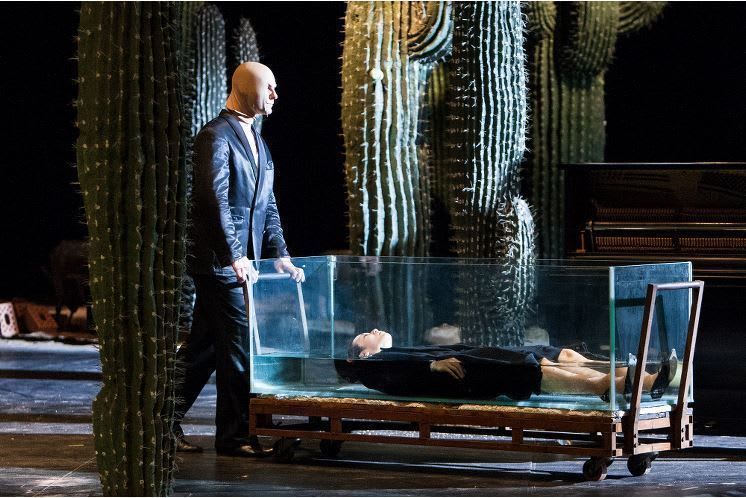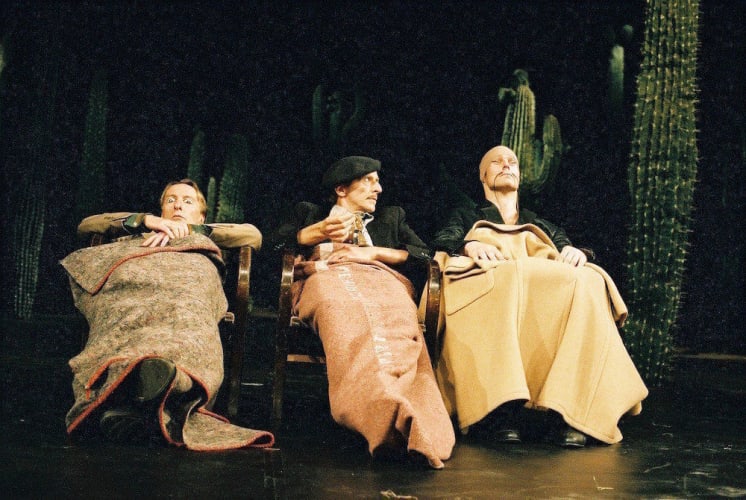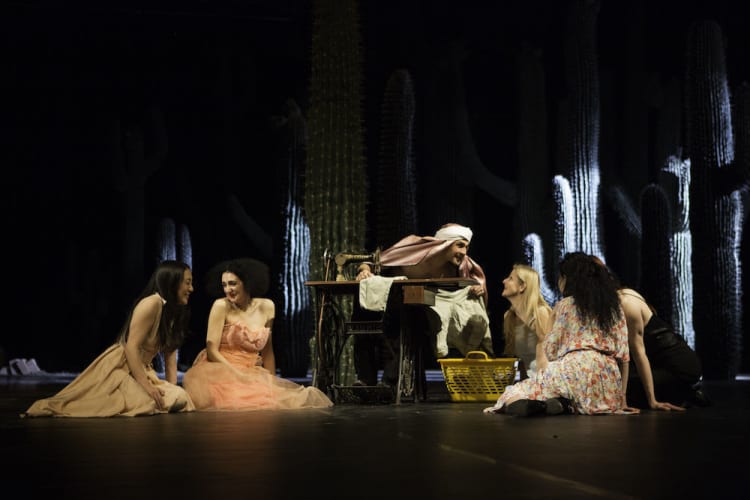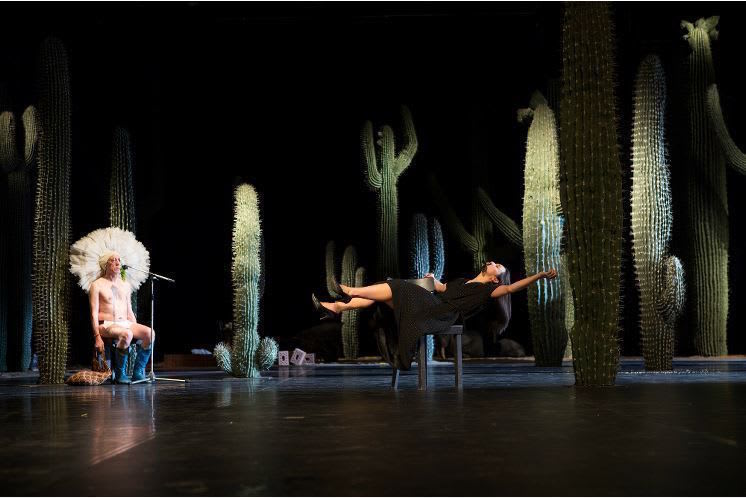Ahnen can mean 'ancestors' as a plural noun, or, as a verb, 'to have a premonition or foreboding, to suspect, surmise, have an inkling or some idea'... Used in phrases it can mean 'I knew it', 'whoever would believe it!', and then there's 'keine Ahnung!'—'I have no idea'.
So, your guess is as good as mine. Wing it, have fun, and fasten seat belts for the obsessive-compulsive ride. Many of the Pina Bausch fans in the audience do just that and give the company a standing ovation even after they have been inconvenienced by a technical hitch, which necessitates a twenty-minute interval, about ten minutes from the end.
Inevitably with Pina Bausch's confusing smoke and mirror games with realism we don't believe Michael Strecker when he announces the problem. There's credit to her: what a spell she spins and how gullible some of us are.
Pina Bausch is a tease, methinks, playing with every concept of the word 'ahnen'. Her 1987 Ahnen is a puzzle, a bonkers compilation of moments and scenes, traduced operatic arias, revue sketches and some impenetrable metaphors, the biggest being the stage full of giant cacti. All, of course, signifying life and death.
Alice Through The Looking Glass (well, there is a walrus onstage briefly for a moth joke), 'Leonora Carrington', 'Jean Cocteau', South American magical realism, dressing up, cross-dressing, mime, hard stares and winks at the audience as well as commands to sit up straight.
Life is a mirage and her troupe are lost souls on mescaline in the arid desert: Jean Laurent Sasportes an Indian chieftain in ballet tutu headdress (from a child's dressing up box?); a woman in a watery aquarium glass coffin; Dominique Mercy and Nazareth Panadero miming dismemberment and evisceration of each other; Julie Anne Stanzak, face painted with red heart, candle lit between her thighs, grating soap (I think) in purgatory; Julie Shanahan in 'Pussy Riot' knitted face balaclava smoking as she contemplates a cabbage on a table (Magritte?).
There is more, much much more, three hours of it to an eclectic musical collage that ranges across centuries and includes Fred Astaire (Lutz Förster does a lovely dance with his hat), Monteverdi, Dowland, folk music from Europe and the Caribbean, 'early Jewish instrumental', 'traditional music from the Nubians, Hamar, Senufo', 'rock and pop' from Japan (for the punk in Scottish kilt). You can't get more esoteric than that.
Oh, and Dominique Mercy singing sweetly: his rendition of Habanera from Bizet's Carmen is amusingly translated by Lutz Förster's smoking gentleman in beret to the Fu Manchu gentleman on his left—some stereotyping going on here.
These three may look as if they are on a cruise, and a pistol-toting woman in pearls and sunglasses with a valet ironing her newspaper may be in a 1930s Shanghai movie, but others have to work brick-building, shifting hay (house of bricks, house of straw, fairy tales), making their beds where they can, washing faces in real snow, scrubbing floors.
Extras include a real dog, a monkey man, a woman in red, a man with orange stuffed in mouth being shaved, same man asked to run through hoop into wall, a pianist and a saxophone player, a superstitious woman, a man with time on his hands, another who likes Twinings teabags on his eyes, a hand-controlled model helicopter (what's that about?), a 'Rudolph Valentino' Sheik on a Singer sewing machine surrounded by adoring women.
All is grist to Pina's mill grinding out significance. Read what you will from whatever your eye falls on. There's too much to take in at one sitting, and not everything is visible—sight lines obscured by cacti. Create your own stories to join all the others woven over the ages to make sense of life.
But, when the performers come together from their solitary wanderings, and dance, they are a delight. Then they weave a little bit of magic. Their disjointed anecdotes may be absurdly funny, but let them dance, then they transcend language and summon up the spirits of the ancestors Pina seeks to resurrect.
The wind blows debris across the stage, film music plays, images imprint, smells evoke—Pina engages all our senses. But, as Cristiana Morganti says in character: "Actually I don't give a shit. Actually I do give a shit. But it doesn't matter." Take what you like from Ahnen, the rest doesn't matter, let it go. It's just silly pranks. And doctor doctor jokes.



